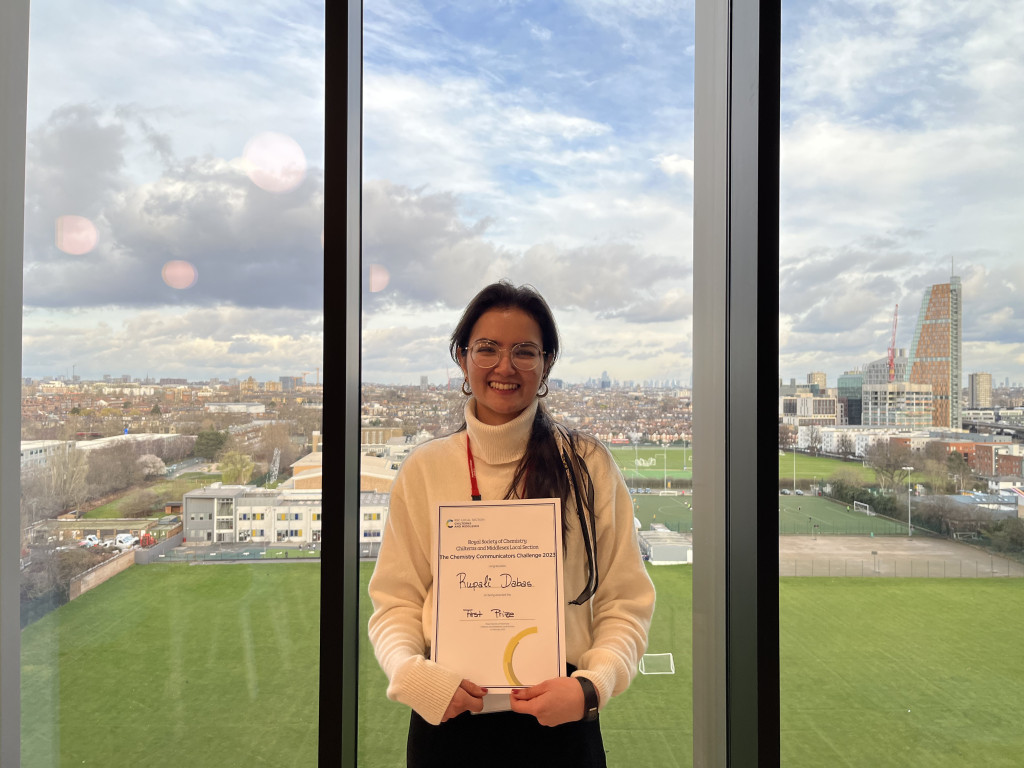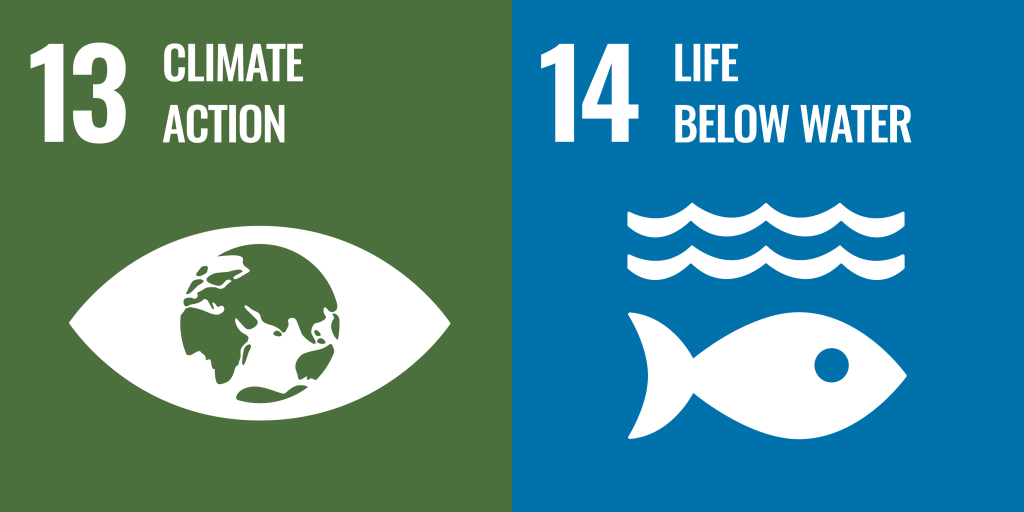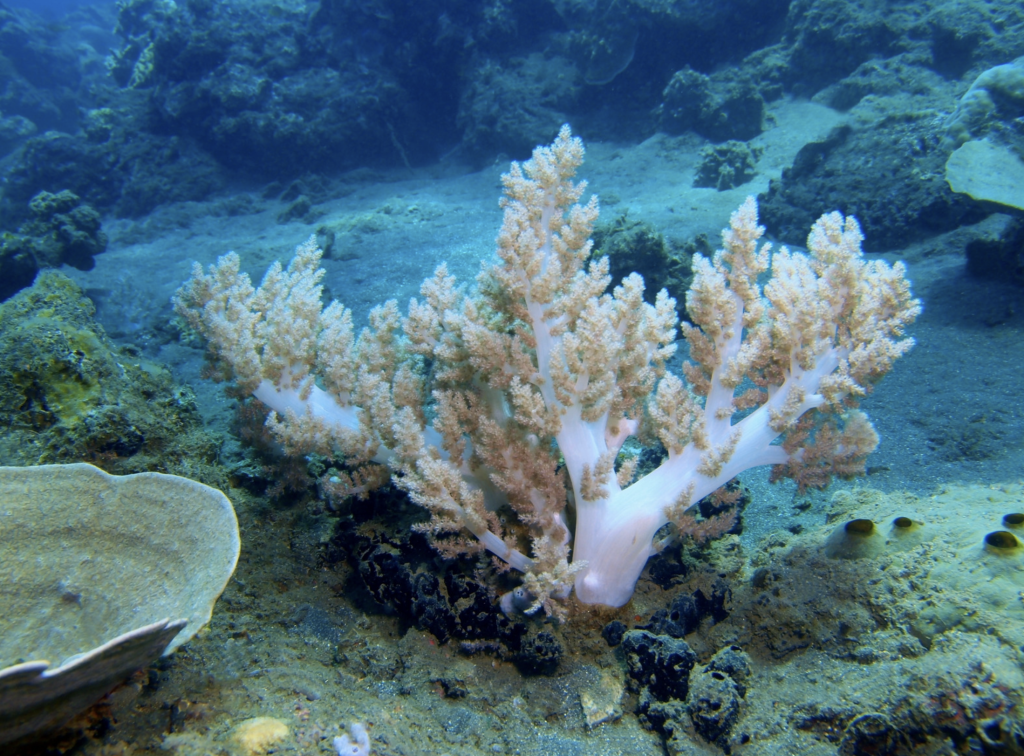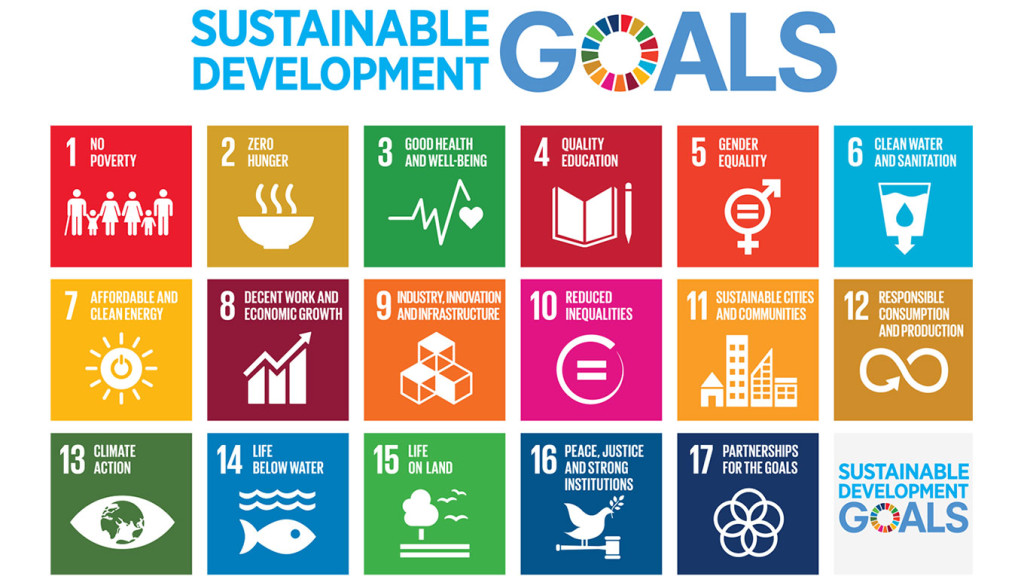By Sofia Velazquez Pimentel

Rupali Dabas from the MRC LMS Cellular Stress Group was awarded the top prize for the Royal Society of Chemistry Communicator’s challenge 2023 for her excellent take on the Medicinal potential of coral reefs in her talk showcased how we could unlock new chemistry and find new drugs, while still following the traditional methods of drug discovery.
The theme of the challenge was ‘Chemistry as part of the UN’s Sustainable Development Goals’, where participants had to present a talk on how chemistry could be an integral part of one of the 17 United Nations’ Sustainable Development Goals (SDGs) for 2030.
Rupali’s winning talk combined her expertise in genetics, organic chemistry, and synthetic biology to showcase the medicinal potential of coral reefs while addressing two Sustainable Development Goals: SDG 13 on climate action and SDG 14 on conserving and sustainably using marine environments.

Rupali’s talk focused on how we can use the medicinal potential of coral reefs whilst still meeting the UN’s Sustainability Goals 13 on climate action and 14 on conserving and sustainably using marine environments.
In her talk, Rupali highlighted that coral reefs are among the most chemically diverse ecosystems on Earth, supporting nearly 25% of all marine species and providing various economic benefits, including tourism, coastal protection, and habitats for commercial fisheries. She also explained how soft corals’ genomes encode metabolic pathways that create valuable medicinal compounds.
‘Even though my specialism is organic chemistry, I have always found genetics and synthetic biology fascinating, which is why I spoke about the potential fusion I noticed between drug discovery and synthetic biology in the paper that I discussed in my talk. I just felt like I had to share the fact that the most innovative science occurs at the intervals of different disciplines’.
– Rupali Dabas, PhD student in LMS Cellular Stress Group
Recently researchers have begun to exploit these precious coral reefs for their medicinal marine compounds. Since coral reefs are already vulnerable, this is a major concern.
About half of coral reefs have already been bleached due to ocean acidification, indicating that they are in danger of disappearing forever. By 2050, more than 90% of coral reefs will be congested due to current emissions levels.
Rupali, therefore, highlighted a solution to protect the coral reefs whilst maximising their medicinal potential is through synthetic biology. By leveraging synthetic biology to study the soft corals’ metabolic pathways, researchers have discovered medicinal compounds that can fight cancer, inflammation, and HIV, without exploiting or damaging coral reefs.

Researchers have discovered metabolic pathways which have been encoded in the genomes of soft corals that code for medicinal compounds.
Rupali explained that communicating science was a new challenge for her but highlighted the importance of science communication in removing disorientation regarding complex technical concepts in society and emphasised the role science plays in defining our society’s future.
She believes that science communication is of vital importance since it can engage and educate a varied audience with varying levels of technical expertise, promote multidisciplinary research and lead to the most innovative science.
‘I believe science communication to be of vital importance since it removes any existing disorientation regarding complex technical concepts in society and emphasises the importance science plays in defining our society’s future.
I applied to this competition because I wanted to test my ability to present in front of an audience with varying levels of technical expertise. I’m not the most confident of orators so winning the first prize was not only extremely unexpected, especially since there were many speakers who I thought were definitely more captivating than I could be, but it was also very reassuring knowing that I could communicate science effectively and in an engaging manner to a varied audience.’
– Rupali Dabas, PhD student in LMS Cellular Stress Group
The Royal Society of Chemistry Communicator’s Challenge is a highly respected competition that recognises excellent communication skills in the field of science. Rupali’s win is a testament to her hard work and dedication to the scientific community, and we congratulate her on this remarkable achievement.

In 2015 all United Nations Member states committed to meeting the 17 Sustainable Development Goals by 2030 in recognition ‘that ending poverty and other deprivations must go hand-in-hand with strategies that improve health and education, reduce inequality, and spur economic growth’. These goals were central to the Royal Society of Chemistry theme ‘Chemistry as part of the UN’s Sustainable Development Goals’.
Read more:
About the United Nation’s 17 Sustainable Development Goals by 2030
Rupali Dabas’ selected references:
- Coral Reefs | National Geographic Society, https://education.nationalgeographic.org/resource/coral-reefs, (accessed 1 February 2023).
- T.-D. Nguyen and T.-T. T. Dang, Old path, new frontier, Nat Chem Biol, 2022, 18, 582–583.
- L. H. O’Hanlon, Deep-sea creatures yield treasure trove of cancer drugs, Nature Medicine, 2005, 11, 698–698.
- F. Berrue and R. G. Kerr, Diterpenes from gorgonian corals, Nat. Prod. Rep., 2009, 26, 681–710.
- J. R. Davison and C. A. Bewley, Tapping into personalized chemistry, Nat Chem Biol, 2018, 14, 108–109.
- T. E. Smith, C. D. Pond, E. Pierce, Z. P. Harmer, J. Kwan, M. M. Zachariah, M. K. Harper, T. P. Wyche, T. K. Matainaho, T. S. Bugni, L. R. Barrows, C. M. Ireland and E. W. Schmidt, Accessing chemical diversity from the uncultivated symbionts of small marine animals, Nat Chem Biol, 2018, 14, 179–185.
This article was written by Sofia Velazquez Pimentel
